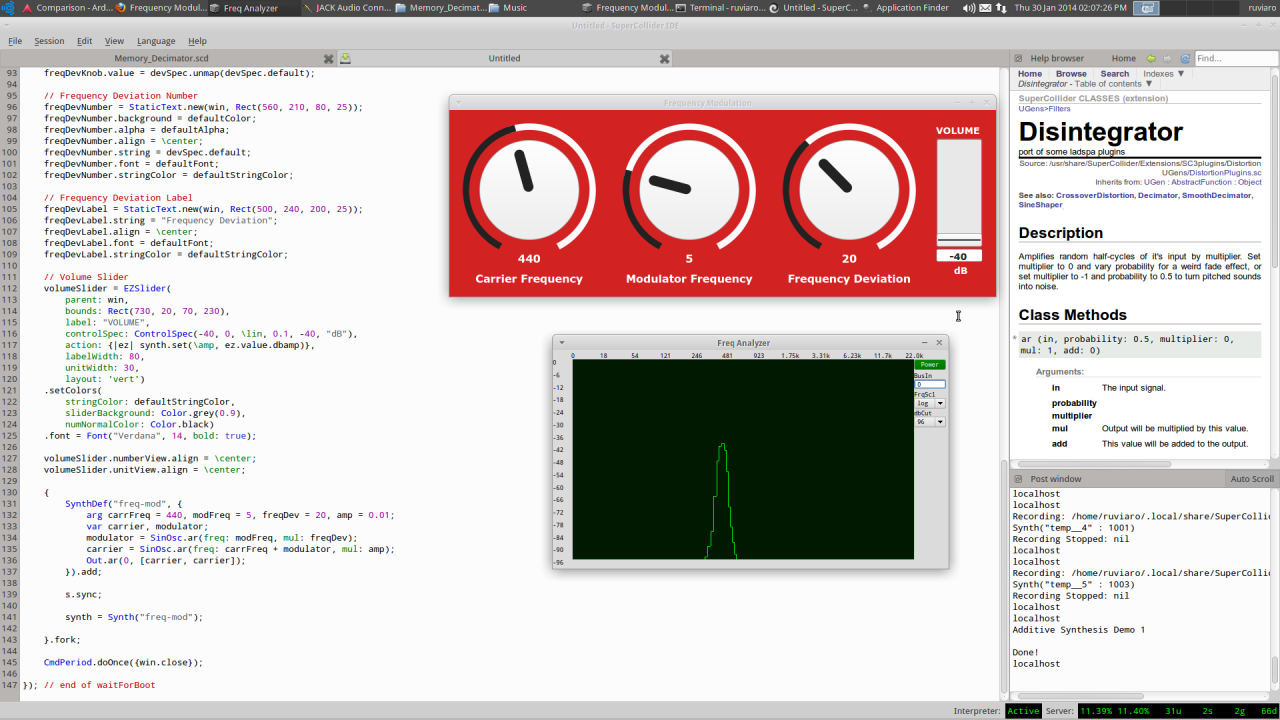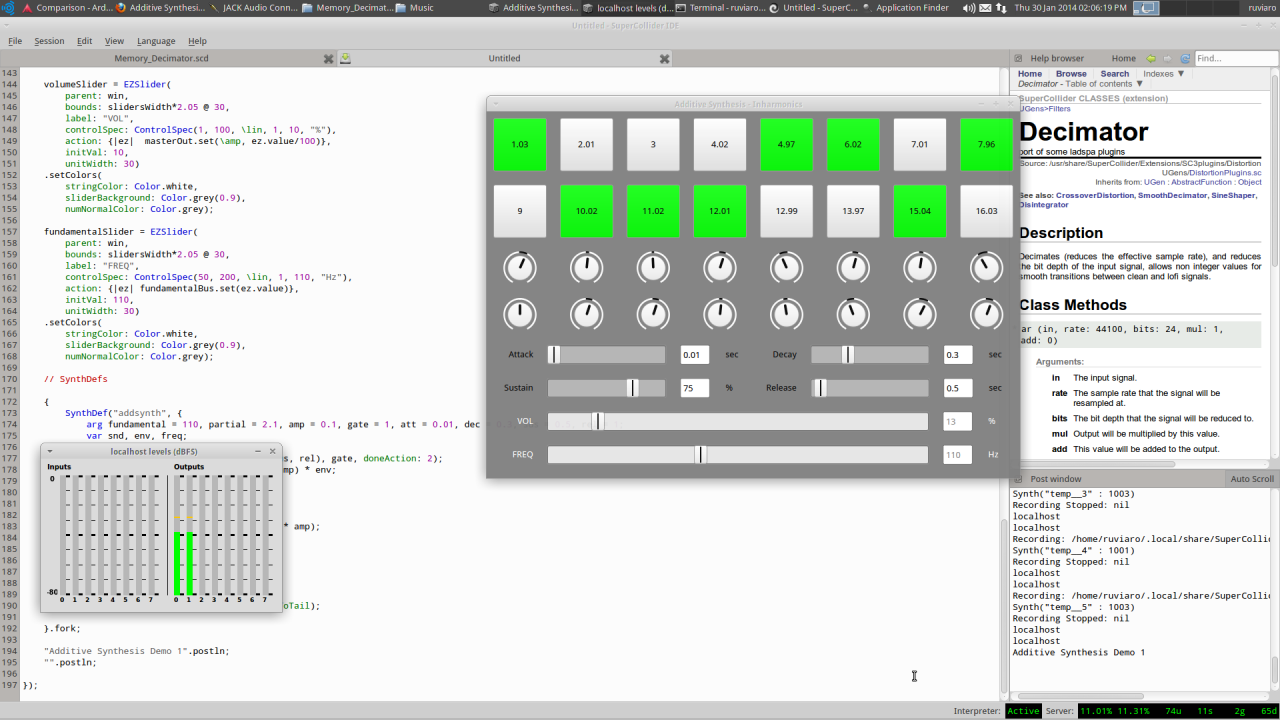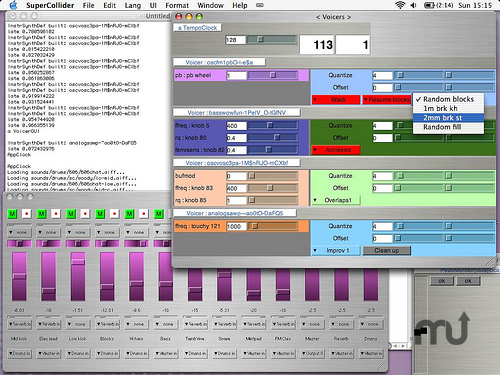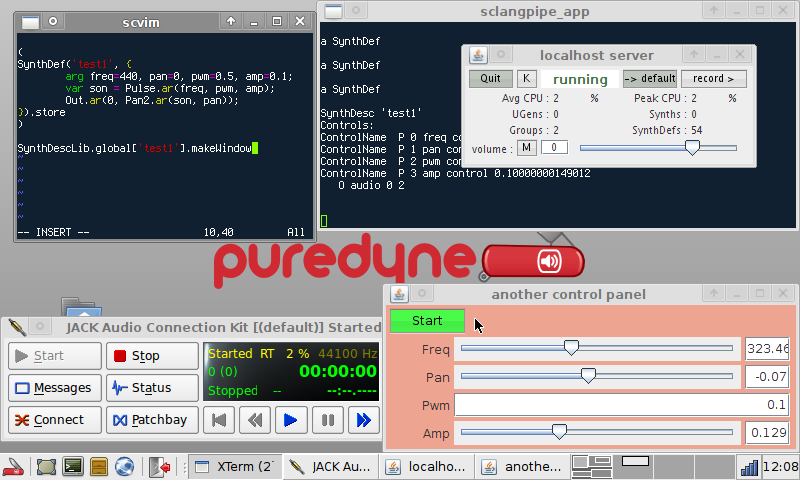SuperCollider 2018
Workshop Date:
Mon, 08/06/2018 - Fri, 08/10/2018
SuperCollider Workshop
Everything you wanted to know about SuperCollider but was afraid to ask!
SuperCollider is one of the most powerful programming environments for real time sound synthesis and processing, algorithmic & generative composition, and many other audio related applications. It is widely used by artists and scientists alike for both research and actual artistic creation. It features a powerful state-of-the-art sound engine and an easy to learn, fully featured object oriented language. Moreover, it is open source and totally free of charge. SuperCollider works on Linux, Mac, and Windows.
About the workshop
This five-day intensive workshop welcomes participants of any discipline with or without prior programming or musical experience. The class is aimed at musicians, composers, researchers, sound artists, programmers, and all computer & electronic music enthusiasts interested in learning more about SuperCollider. If you have no prior experience, we will guide you through the creation of your first sounds, instruments and musical structures in SuperCollider. If you have some prior experience with SuperCollider or other similar software, you will be able to move more quickly into advanced topics with help and advice from the instructors.This is a project-based class in which you will learn practical skills along with the study of technical, theoretical and artistic related topics. People of all computer skill levels are welcome in this learning environment. Participants immediately start working on projects the first day and are expected to finish a short piece by the last day. We will end the week with a listening session where all participants will play and discuss their final projects.
Participants will have access to the state-of-the-art facilities at CCRMA, including two multichannel composition studios. You may use your own laptop during the workshop; alternatively, you may use one of the several CCRMA workstations available in the building.
Schedule
Workshop runs from 10:00 AM to 6:00 PM every day, with one hour for lunch (35 hours of instruction time total).Course Contents
What is SuperCollider and how it compares to other programming environments such as Pd and Max/MSP;UGens (Unit Generators): oscillators, filters, delays, granulators, etc.;
Brief overview of synthesis techniques: additive, subtractive, AM, FM, granular synthesis;
Building your own Synth Definition (SynthDef);
Synth Server & Language
Using external controllers (MIDI or OSC)
Patterns: Pbind and family
Building GUIs (Graphical User Interfaces) in SuperCollider.
Algorithmic composition
Fundamentals of spatialization techniques (ambisonics, amplitude panning, VBAP, reverberation)
The course is largely based on the book A Gentle Introduction to SuperCollider by Bruno Ruviaro, and additional topics are normally covered more in depth according to students' interests and questions.

More Pictures?
Click here for pictures from previous workshops.About the Instructors
Fernando Lopez-Lezcano is a composer, performer, lecturer and computer systems administrator at CCRMA, Stanford University.
Bruno Ruviaro is a composer, and author of the book "A Gentle Introduction to SuperCollider" (2014). He teaches composition and electronic music at Santa Clara University.
Install SuperCollider
If you plan to use your own laptop, please install and test SuperCollider before the workshop starts. We will of course try to help troubleshooting your install if it does not work, but it it would be immensely helpful if you have a working setup when the workshop starts.If you are not sure how to install SuperCollider, or cannot bring your own laptop, you will have a CCRMA desktop computer available for you for you.Diversity in Computer Music Scholarship
For more information, please visit this page.Register now!
Click on the big button below to register. If you have any questions, do not hesitate to ask. For information about fees, please visit the mainYou can download SuperCollider from:
https://supercollider.github.io/download

Screenshots, anyone?


A lot more screenshots can be seen in this photo album.
Here are some old, nostalgic screenshots:

SuperCollider on PlanetCCRMA Linux (Fedora)

SuperCollider on the Mac

SuperCollider on Linux

Another Mac screenshot...
CBack to CCRMA Summer Workshop Main Page

